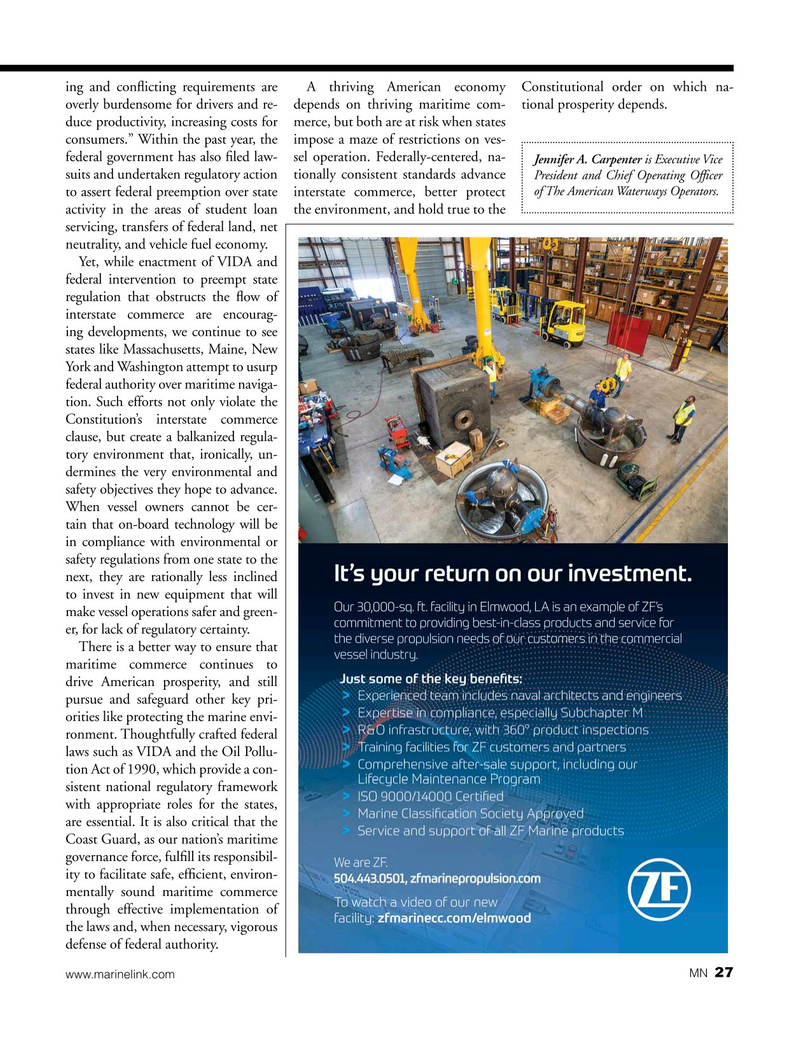
Page 27: of Marine News Magazine (March 2019)
Pushboats, Tugs & Assist Vessels
Read this page in Pdf, Flash or Html5 edition of March 2019 Marine News Magazine
ing and conficting requirements are A thriving American economy Constitutional order on which na- overly burdensome for drivers and re- depends on thriving maritime com- tional prosperity depends. duce productivity, increasing costs for merce, but both are at risk when states consumers.” Within the past year, the impose a maze of restrictions on ves- federal government has also fled law- sel operation. Federally-centered, na-
Jennifer A. Carpenter is Executive Vice suits and undertaken regulatory action tionally consistent standards advance
President and Chief Operating Offcer of The American Waterways Operators.
to assert federal preemption over state interstate commerce, better protect activity in the areas of student loan the environment, and hold true to the servicing, transfers of federal land, net neutrality, and vehicle fuel economy.
Yet, while enactment of VIDA and federal intervention to preempt state regulation that obstructs the fow of interstate commerce are encourag- ing developments, we continue to see states like Massachusetts, Maine, New
York and Washington attempt to usurp federal authority over maritime naviga- tion. Such efforts not only violate the
Constitution’s interstate commerce clause, but create a balkanized regula- tory environment that, ironically, un- dermines the very environmental and safety objectives they hope to advance.
When vessel owners cannot be cer- tain that on-board technology will be in compliance with environmental or safety regulations from one state to the next, they are rationally less inclined to invest in new equipment that will make vessel operations safer and green- er, for lack of regulatory certainty.
There is a better way to ensure that maritime commerce continues to drive American prosperity, and still pursue and safeguard other key pri- orities like protecting the marine envi- ronment. Thoughtfully crafted federal laws such as VIDA and the Oil Pollu- tion Act of 1990, which provide a con- sistent national regulatory framework with appropriate roles for the states, are essential. It is also critical that the
Coast Guard, as our nation’s maritime governance force, fulfll its responsibil- ity to facilitate safe, effcient, environ- mentally sound maritime commerce through effective implementation of the laws and, when necessary, vigorous defense of federal authority. 27MN www.marinelink.com

 26
26

 28
28
